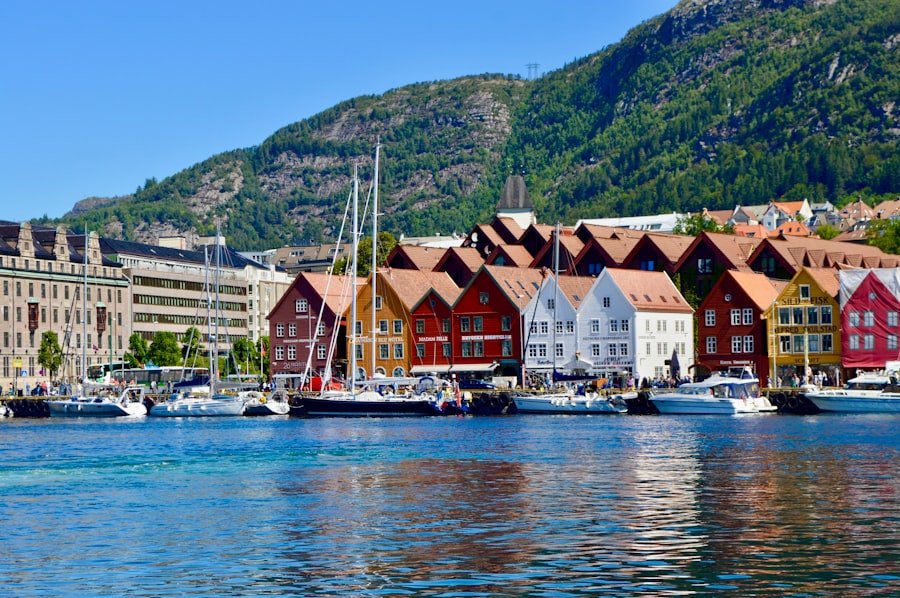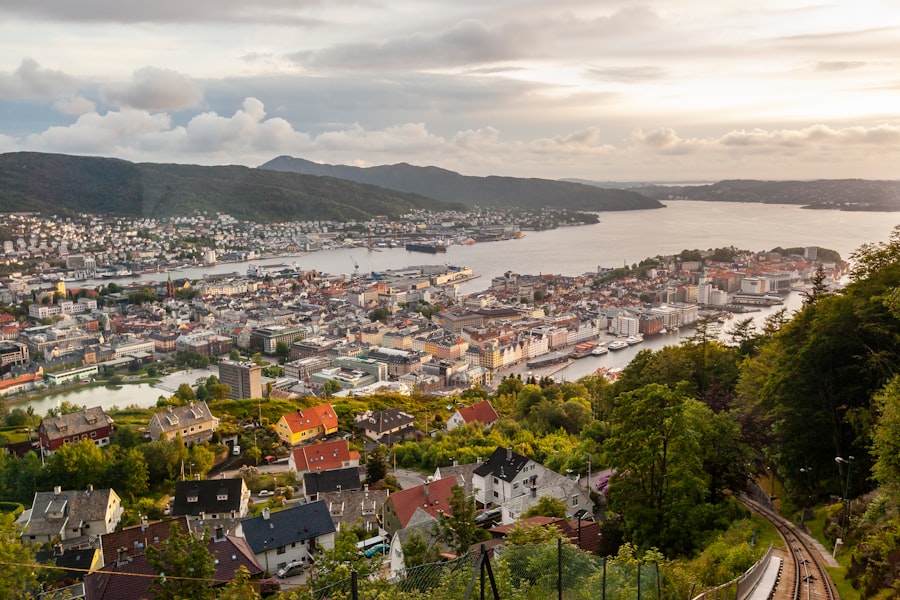The origins of May 1st, known as Labour Day or International Workers’ Day, can be traced back to the late 19th century, a period marked by significant social and political upheaval across Europe. In Norway, as in many other countries, the movement for workers’ rights began to gain momentum as industrialisation transformed the landscape of labour. The first May Day celebrations in Norway were inspired by the broader international movement advocating for workers’ rights, particularly the demand for an eight-hour workday.
The date itself was chosen to commemorate the Haymarket affair in Chicago in 1886, where a peaceful rally in support of workers’ rights turned violent, leading to the deaths of several individuals. In Norway, the first official celebration of May 1st took place in 1890, when various labour organisations and socialist groups came together to advocate for better working conditions and social justice. This initial gathering laid the groundwork for what would become an annual tradition, symbolising solidarity among workers and their collective struggle for rights and recognition.
Over the years, May Day evolved from a simple demonstration into a significant event that encapsulated the aspirations and challenges faced by the working class in Norway. Your journey to a smooth relocation starts here. Talk one-on-one with a Norway Relocation specialist and turn your plan into a reality.
Summary
- May 1st in Norway has its origins in the struggle for workers’ rights and the eight-hour workday in the late 19th century.
- International Labour Day has had a significant influence on the development of May 1st as a day of protest and celebration in Norway.
- May 1st is marked by demonstrations, parades, and cultural events, reflecting its dual nature as a day of protest and celebration.
- May 1st has played a crucial role in shaping Norwegian labour history, contributing to the rise of socialism and the evolution of workers’ rights.
- Traditions and customs associated with May 1st in Norway include wearing red clothing, singing workers’ songs, and participating in political rallies.
The Influence of International Labour Day on Norway
The influence of International Labour Day on Norway cannot be overstated. As a member of the global labour movement, Norway embraced the ideals of solidarity and collective action that characterised May Day celebrations worldwide. The Norwegian labour movement was heavily influenced by socialist and communist ideologies, which sought to address the inequalities faced by workers in an increasingly capitalist society.
This international connection provided a framework for Norwegian workers to articulate their demands and aspirations, fostering a sense of unity that transcended national borders. As the years progressed, Norway’s participation in International Labour Day celebrations became more pronounced. The day served as a platform for various political parties and labour unions to voice their concerns regarding workers’ rights, social justice, and economic equality.
The influence of international events on Norway’s May Day celebrations is evident in the way local organisations adopted global themes and issues, aligning their struggles with those of workers around the world. This interconnectedness not only strengthened the Norwegian labour movement but also highlighted the importance of international solidarity in the fight for workers’ rights.
May 1st as a Day of Protest and Celebration

May 1st has long been regarded as both a day of protest and celebration in Norway. While it serves as an opportunity for workers to voice their grievances and advocate for change, it is also a time for communities to come together in solidarity and joy. The dual nature of this day reflects the complexities of the labour movement, where struggles for rights are often intertwined with moments of collective celebration.
In cities across Norway, large parades and demonstrations take place, featuring speeches from prominent labour leaders and political figures who address pressing issues affecting workers. The celebratory aspect of May Day is equally significant, as it provides an opportunity for families and friends to gather and enjoy various festivities. In many towns and cities, local events include music performances, food stalls, and activities for children, creating a vibrant atmosphere that fosters community spirit.
This blend of protest and celebration encapsulates the essence of May 1st in Norway, where the fight for workers’ rights is not only about addressing grievances but also about celebrating achievements and fostering a sense of belonging among individuals from diverse backgrounds.
The Role of May 1st in Norwegian Labour History
May 1st holds a pivotal place in Norwegian labour history, serving as a marker of progress and change over the decades. The day has witnessed significant milestones in the struggle for workers’ rights, from early demands for better working conditions to contemporary issues such as wage equality and job security. Each year, as workers gather to commemorate this day, they reflect on the achievements of past generations while also acknowledging the ongoing challenges that remain.
The historical significance of May Day is evident in its ability to galvanise public support for various labour initiatives. Over time, it has become a platform for raising awareness about critical issues such as unemployment, workplace safety, and social welfare. The speeches delivered during May Day events often highlight the achievements of labour unions and advocate for continued progress in securing rights for all workers.
As such, May 1st serves not only as a celebration of past victories but also as a call to action for future generations to continue the fight for justice and equality in the workplace.
May 1st Traditions and Customs in Norway
Norwegian traditions surrounding May 1st are rich and varied, reflecting the country’s unique cultural heritage while also embracing the broader themes of international solidarity. One common custom is the organisation of parades that take place in major cities such as Oslo, Bergen, and Trondheim. These parades often feature colourful banners, flags representing various labour unions, and enthusiastic participants marching together to demonstrate their commitment to workers’ rights.
In addition to parades, many communities host local events that include speeches from union leaders and politicians who address current issues facing workers. These gatherings often serve as an opportunity for individuals to engage with one another and discuss their shared experiences within the workforce. Furthermore, traditional foods are often enjoyed during these celebrations, with many families coming together to share meals that reflect their cultural backgrounds.
This combination of tradition and modernity creates a unique atmosphere on May 1st that resonates with both older generations who remember past struggles and younger individuals who are just beginning to engage with labour issues.
May 1st and the Rise of Socialism in Norway

The rise of socialism in Norway is closely intertwined with the history of May 1st celebrations. As workers began to organise themselves into unions during the late 19th century, socialist ideologies gained traction among those advocating for social change. The principles of socialism—emphasising collective ownership and equitable distribution of resources—found a receptive audience among Norwegian workers who were grappling with the harsh realities of industrialisation.
May Day became a focal point for socialist movements in Norway, providing a platform for political parties such as the Labour Party to promote their vision for a more equitable society. The day was marked by rallies that not only celebrated workers’ achievements but also called for systemic changes to address economic disparities. Over time, socialism became an integral part of Norway’s political landscape, influencing policies related to welfare, education, and healthcare.
The legacy of these movements continues to shape contemporary discussions around social justice and economic equality in Norway today.
May 1st and the Evolution of Workers’ Rights in Norway
The evolution of workers’ rights in Norway has been significantly shaped by the events surrounding May 1st celebrations over the years. As workers gathered on this day to voice their demands, they contributed to a growing awareness of labour issues that ultimately led to legislative changes aimed at improving working conditions. From early calls for an eight-hour workday to contemporary discussions about job security and fair wages, May Day has served as a catalyst for change within Norwegian society.
The impact of these celebrations can be seen in various legislative milestones that have occurred throughout Norway’s history. For instance, significant reforms related to workplace safety regulations, minimum wage laws, and anti-discrimination policies have all been influenced by the collective action demonstrated on May 1st. As workers continue to advocate for their rights on this day, they not only honour past achievements but also push for ongoing improvements that reflect the evolving nature of work in today’s society.
May 1st and the Impact of World War II on Norway
World War II had a profound impact on Norway’s May 1st celebrations, as the war disrupted traditional customs and altered the landscape of labour relations. During the German occupation from 1940 to 1945, many public gatherings were banned or heavily restricted, leading to a significant decline in organised demonstrations on this important day. However, even under oppressive conditions, underground movements continued to celebrate May Day in secret, highlighting its enduring significance as a symbol of resistance against tyranny.
Following the war’s conclusion, May 1st emerged as a powerful reminder of both sacrifice and resilience within Norwegian society. The post-war period saw a renewed commitment to workers’ rights and social justice, with many individuals reflecting on the lessons learned during the conflict. As Norway rebuilt its economy and society after the war, May Day celebrations took on new meaning—serving not only as a commemoration of past struggles but also as an affirmation of democratic values and human rights.
The Modern Significance of May 1st in Norway
In contemporary Norway, May 1st retains its significance as a day dedicated to advocating for workers’ rights while also celebrating social progress. As new challenges arise within the workforce—such as automation, gig economy jobs, and globalisation—the relevance of May Day remains strong. Workers continue to gather each year to address these issues collectively while honouring those who fought for their rights in previous generations.
Modern celebrations often reflect current social movements that extend beyond traditional labour concerns. Issues such as climate change, gender equality, and racial justice have become integral parts of May Day discussions in recent years. This evolution demonstrates how May 1st has adapted to encompass broader societal challenges while remaining rooted in its original purpose: advocating for justice and equality for all workers.
May 1st and the Intersection of Politics and Culture in Norway
May 1st serves as a unique intersection between politics and culture in Norway, where social movements are often intertwined with cultural expressions. The day provides an opportunity for various political parties—particularly those on the left—to showcase their platforms while engaging with citizens through music, art, and community events. This blending of politics and culture creates an environment where individuals can connect with one another while discussing important issues affecting their lives.
Cultural expressions during May Day celebrations often reflect Norway’s diverse population, showcasing performances from various ethnic groups that contribute to the country’s rich tapestry. This cultural diversity enriches the overall experience of May Day while reinforcing its message of solidarity among all workers—regardless of background or identity. As such, May 1st has become not only a day for political advocacy but also a celebration of cultural heritage that unites people across different communities.
May 1st as a Public Holiday in Norway
In recognition of its historical significance and ongoing relevance, May 1st is officially designated as a public holiday in Norway. This status allows individuals across the country to participate fully in celebrations without concerns about work commitments or obligations. As a public holiday, it underscores society’s acknowledgment of workers’ contributions while providing an opportunity for reflection on ongoing struggles within the workforce.
The designation of May 1st as a public holiday also highlights its importance within Norwegian culture—a day when communities come together to celebrate achievements while advocating for future progress. As people gather in parks or city squares across Norway on this day each year—whether through parades or local events—they reaffirm their commitment to social justice and collective action that has defined May Day since its inception. In conclusion, while navigating through various historical contexts—from its origins rooted in international solidarity to its modern significance as both a day of protest and celebration—May 1st remains an essential part of Norwegian identity.
As individuals continue to gather each year on this day to honour past struggles while advocating for future progress within their communities—the spirit behind Labour Day endures strong within Norwegian society today. For those considering relocation to Norway or seeking assistance with settling into this vibrant culture while learning about its rich history—including events like May Day—the Norway Relocation Group offers invaluable support throughout this journey. Their expertise can help newcomers navigate practical aspects such as housing arrangements or understanding local customs while ensuring they feel welcomed within their new environment.
Additionally, learning Norwegian can greatly enhance one’s experience living in Norway; thus enrolling in courses at NLS Norwegian Language School located in Oslo can be beneficial. These courses provide comprehensive language training tailored specifically towards helping individuals integrate into Norwegian society effectively—allowing them not only to communicate fluently but also gain deeper insights into cultural nuances surrounding significant events like May 1st celebrations across this beautiful country!
Register for a Norwegian class at the NLS Norwegian Language School now!

